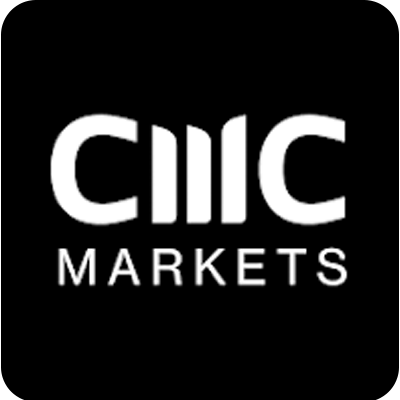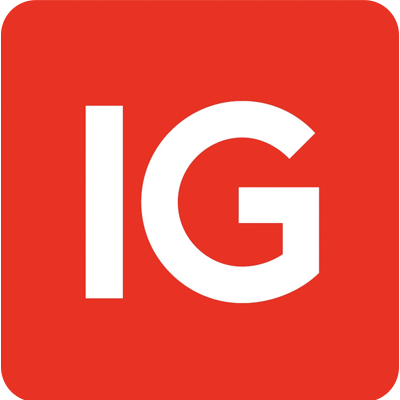
The Best BaFin Regulated Forex Brokers
For traders in Germany, choosing a BaFin regulated forex broker offers peace of mind and the reassurance of trading under one of Europe’s strictest financial regulatory frameworks. Licensed brokers must follow rigorous standards on client fund protection, transparency, and operational integrity, creating a safer and more stable trading environment.
BaFin, short for the Federal Financial Supervisory Authority, was founded in 2002 and has acted as Germany’s national competent authority within the European Banking Supervision framework since 2014. Based in Bonn and Frankfurt, BaFin oversees the licensing and supervision of banks, financial service providers and insurance companies across the country.
To help identify the most reputable brokers, our team has reviewed, compared, and verified a range of BaFin regulated brokers according to a strict set of benchmarks. Below you can find the brokers that performed best in our analysis for 2025.

Overview of BaFin Regulated Forex Brokers
Broker Name: Pepperstone
Established: 2010
Germany Office: Düsseldorf
Minimum Deposit: $0
Accepts German Clients: Yes
Copy Trading: Yes
Negative Balance Protection: Yes
Pros & Cons
✅ Excellent range of trading tools
✅ Good choice of trading platforms
❌ High trading fees
Broker Name: IG
Established: 1974
Germany Office: Frankfurt am Main
Minimum Deposit: $0
Accepts German Clients: Yes
Copy Trading: Yes
Negative Balance Protection: Yes
Pros & Cons
✅ Extensive range of trading instruments
✅ Good platform lineup
❌ Minimal educational offering


CMC Markets
Rating: 4 / 5
Broker Name: CMC Markets
Established: 1989
Germany Office: Frankfurt am Main
Minimum Deposit: $0
Accepts German Clients: Yes
Copy Trading: Yes
Negative Balance Protection: Yes
Pros & Cons
✅ High number of trading instruments
✅ No minimum deposit
❌ No MetaTrader 5 (MT5)
FX Trust Score Comparison of BaFin Regulated Forex Brokers
| Broker | BaFin Regulation | Germany Office | Trading Platforms | Average EUR/USD Spread | Customer Support | FX Trust Score |
| Pepperstone | Licence number: 151148 | Neubrückstraße 1, 40213 Düsseldorf | TradingView, cTrader, MT4, MT5 | 1.1 pips | 24/5 | |
| Score | 10 | 10 | 8 | 5 | 8 | 8.55/10 |
| IG | Licence number: 148759 | Westhafen Tower, Westhafenplatz 1, 60327 Frankfurt am Main | ProRealTime, L2 Dealer, MT4 | 1.1 pips | 24/5 | |
| Score | 10 | 10 | 7 | 5 | 8 | 8.4/10 |
| CMC Markets | Licence number: 154814 | Garden Tower, Neue Mainzer Str. 46-50, 60311 Frankfurt am Main | MT4 | 1.4 pips | 24/5 | |
| Score | 10 | 10 | 5 | 4 | 8 | 7.95/10 |

The FXTS Verdict – Which are the Best BaFin Regulated Forex Brokers?
This guide highlights the best BaFin regulated brokers for 2025, following a detailed assessment of their official licence numbers, registered offices in Germany and trading features. Our evaluation also considered key aspects such as available trading platforms, average EUR/USD spreads and customer service availability.
Pepperstone and IG emerged as leading choices, slightly outperforming CMC Markets due to their broader platform selection and trading toolsets. However, all three brokers offer strong reliability, 24/5 multilingual customer support and no minimum deposit requirements, making them ideal for both new and experienced traders.
Before opening an account, traders should visit each broker’s official website to confirm the full details of their regulatory coverage, account conditions, and platform options, ensuring the broker is aligned with their individual trading goals.

BaFin’s Role in Forex Broker Oversight
The Federal Financial Supervisory Authority (BaFin) serves as Germany’s independent financial regulator, responsible for maintaining the stability, integrity and transparency of the national financial system. With broad powers of supervision and enforcement, BaFin closely monitors regulated forex brokers to ensure compliance with German and EU financial laws.
Operating under the Federal Ministry of Finance, BaFin grants licences to all legitimate financial service providers and investment firms operating in Germany. It also maintains a public online register of BaFin-regulated brokers, helping investors verify a firm’s authorisation status before trading.
Looking to the future, BaFin continues to modernise its operations through increased digitalisation and data-driven supervision, further strengthening its position as one of Europe’s most trusted and effective financial authorities.

FAQs
The Federal Financial Supervisory Authority, better known as BaFin, is Germany’s primary financial regulatory body. It is an independent federal institution with headquarters based in the key German cities of Bonn and Frankfurt am Main.
BaFin is the abbreviated name for the Federal Financial Supervisory Authority. In German, it is known as Bundesanstalt für Finanzdienstleistungsaufsicht. BaFin was first created in May 2002 through the merger of Germany’s banking, securities, and insurance regulators.
BaFin is Germany’s financial regulator, overseeing banks, insurers, and securities markets. Its main purpose is to supervise the financial sector, working alongside the Deutsche Bundesbank and European Central Bank (ECB) to maintain the smooth and secure functioning of the German financial system.
BaFin has various regulatory, supervisory, and enforcement powers in Germany. It can grant and revoke financial services licences, monitor compliance, and impose sanctions on businesses that fail to comply with the law. BaFin also has powers to enforce anti-money laundering (AML) measures designed to maintain financial stability.
Any broker that is fully licensed and registered with BaFin. Regulated forex brokers offer traders greater security and peace of mind, as they are required to follow strict financial regulations, ensure fund safety, and maintain operational transparency.
Yes, BaFin is Germany’s main financial regulator. Its principal role is to supervise and oversee the safety, security, and protection of the country’s financial sector. Headquartered in Bonn and Frankfurt am Main, BaFin has played an important role in overseeing financial institutions, working to ensure greater compliance and stability across the industry.
Publication date:
31/05/2024
Author: FX Trust Score
Last updated on October 10, 2025







